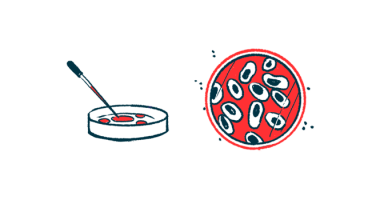FDA approval decision expected in May on RDEB cell therapy pz-cel
US agency grants priority review for treatment formerly known as EB-101

The U.S. Food and Drug Administration (FDA) has granted priority review to an application seeking approval of pz-cel (prademagene zamikeracel) — a cell therapy previously known as EB-101 — for people with recessive dystrophic epidermolysis bullosa (RDEB).
Granting priority review shortens the time it will take the agency to go over the biologics license application (BLA) submitted by therapy developer Abeona Therapeutics from the usual 10 months to about six months. The goal of priority review is to get important medicines to the market faster.
A decision from the FDA now is expected by May 25, 2024 — the target action date — Abeona said in a company press release.
“The FDA’s acceptance of our BLA for priority review underscores the high unmet need in RDEB and the potential for pz-cel to provide meaningful benefit to these patients,” said Vish Seshadri, PhD, Abeona’s CEO.
The company submitted the BLA in late September, following a meeting with the FDA in which the agency indicated that available clinical data on pz-cel were sufficient to support such an application.
No advisory meeting planned by FDA in review of pz-cel
According to Abeona, the FDA is not currently planning to hold an advisory meeting — an optional step in reviewing an application for a new therapy — prior to issuing its decision. In an advisory meeting, the agency can convene a panel of outside experts to review any questions about the application.
“We thank the FDA for their commitment and look forward to working with them through the BLA review, with the goal of bringing this therapy to patients as soon as possible,” Seshadri said.
RDEB is caused by mutations in the gene COL7A1, which result in a deficiency in type VII collagen, a protein needed for the skin’s structural integrity. As such, patients have fragile skin that easily blisters and tears. This can lead to chronic, open wounds that don’t easily heal.
Pz-cel is gene-corrected cell therapy designed to restore type VII collagen production in chronic wounds, thereby promoting their healing.
The experimental treatment involves collecting a patient’s skin cells, then engineering them in the lab to carry a healthy version of the COL7A1 gene. The modified cells are then grown on a cellular sheet, which can be surgically grafted onto the person’s wounds.
Abeona’s BLA for pz-cel is mainly based on data from a Phase 3 clinical trial called VIITAL (NCT04227106). The study enrolled 11 children and adults with RDEB who had chronic wounds that had remained open for at least six months. Across the participants, more than 80 chronic wounds were either treated with pz-cel or left untreated for comparison.
The results showed that, after six months, most pz-cel-treated wounds (81.4%) had healed by at least 50%, as compared with 16.3% of untreated wounds. Patients also reported less pain associated with treated wounds, and the cell therapy was generally well-tolerated.
Pz-cel has been granted orphan drug and rare pediatric disease designations by the FDA, as well as being named a regenerative medicine advanced therapy and a breakthrough therapy by the agency. Such designations are aimed at speeding a therapy’s development so as to get approved treatments to patients more quickly.







